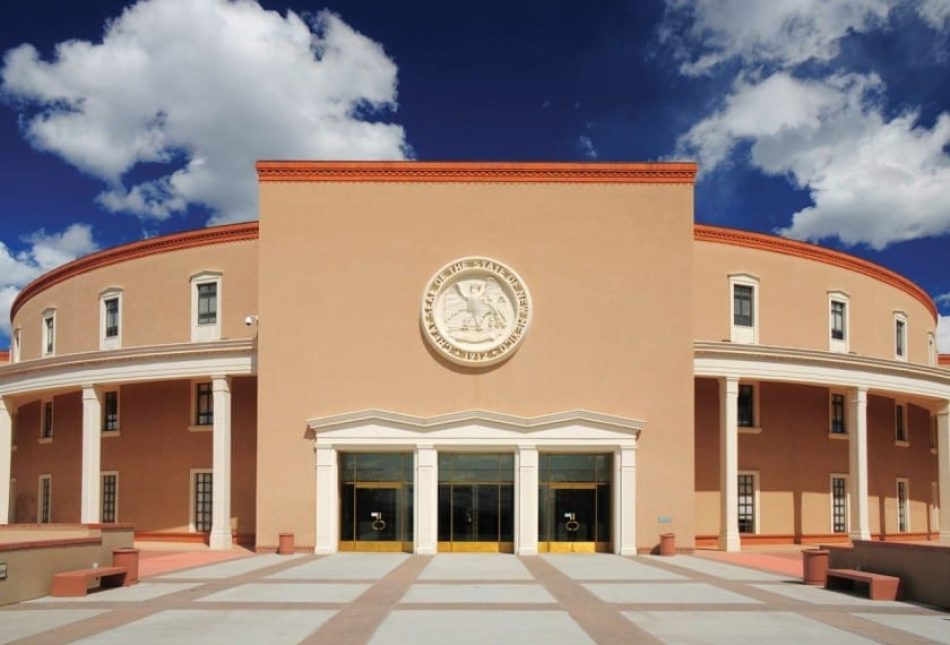RGF op-ed: When it comes to 2024 session: First, do no harm

The following opinion piece appeared in the Las Cruces Sun-News on January 6, 2024.

With yet another massive budget surplus awaiting the New Mexico Legislature as they convene in Santa Fe for the 2024 30-day legislative session, this column should rightly be replete with ideas for how the Gov. and Legislature can use that surplus to diversify the State’s economy and bring New Mexico out of poverty. Alas, if we learned nothing from last year’s 2023 session, it is that even at a time of surplus, the Legislature can still harm our economy.
As the Legislature convened last year with a $3.6 billion surplus, the tax “omnibus” bill included provisions that would have raised the personal income tax, “sin” taxes on alcohol and tobacco, and would have raised capital gains and corporate income taxes as well. All tax hikes must come from somewhere and they always come out of the pockets of businesses and consumers. Gov. Lujan Grisham (thankfully) vetoed the tax hikes contained in last year’s “omnibus” bill.
With another massive surplus this year all tax hikes should be dead on arrival. Ideally, Lujan Grisham would simply tell the Legislature that New Mexico state government has plenty of money and that it needs to diversify its economy, not make it harder for businesses and citizens to do business here.
While the concept of “do no harm” prevails in the medical profession, it should apply as well to New Mexico’s current economic situation. Advocacy groups are lining up to push “Paid Family Leave” legislation like last year’s SB 11. The bill was sponsored by Sen. Mimi Stewart, D-Albuquerque and passed the Senate only to be narrowly killed in the House.
As proposed, paid family leave legislation would require employees to pay $5 for every $1,000 of income and employers with five or more employees would pay $4 for every $1,000 of income into a paid family leave “trust fund” administered through the Department of Workforce Solutions. When taking paid leave, the employee who makes more than minimum wage would not receive their entire salary but a percentage of it.
The first issue is that concerns have been raised about the viability of this fund. The Legislature’s own Fiscal Impact Report cites “potential fund insolvency risk.” Of course, it is hard to predict how many workers would use paid leave each year, but solvency is likely to be a serious issue as we have seen in funds set up by the government (Medicare and Social Security come to mind but are hardly alone).
The biggest question that must be asked is why all New Mexico workers (and their employers) should be forced into paying for a one-size-fits-all paid family leave plan. If this is such a great idea, the State has more than enough money to fund such a scheme.
After all, while paid leave will benefit those who use it, to those who don’t (and their employers) it is nothing but a tax increase (or wage reduction). This comes at a time when wages have not kept up with the rate of inflation.
But, the State of New Mexico has plenty of money! The solution is simple, rather than imposing more economically harmful regulations on average New Mexicans, if the Legislature wishes to make paid leave benefits a priority, they should set aside a portion of the oil and gas surplus to do it.
I wish we were having more substantive discussions in New Mexico about how to use this amazing surplus to lower tax burdens and diversify our economy. Sadly, that’s not what is happening. But, at the very least when it comes to taxes and proposals like paid leave, at a barre minimum the Legislature should “do no harm.”
Paul Gessing is president of New Mexico’s Rio Grande Foundation. The Rio Grande Foundation is an independent, nonpartisan, tax-exempt research and educational organization dedicated to promoting prosperity for New Mexico based on principles of limited government, economic freedom and individual responsibility
